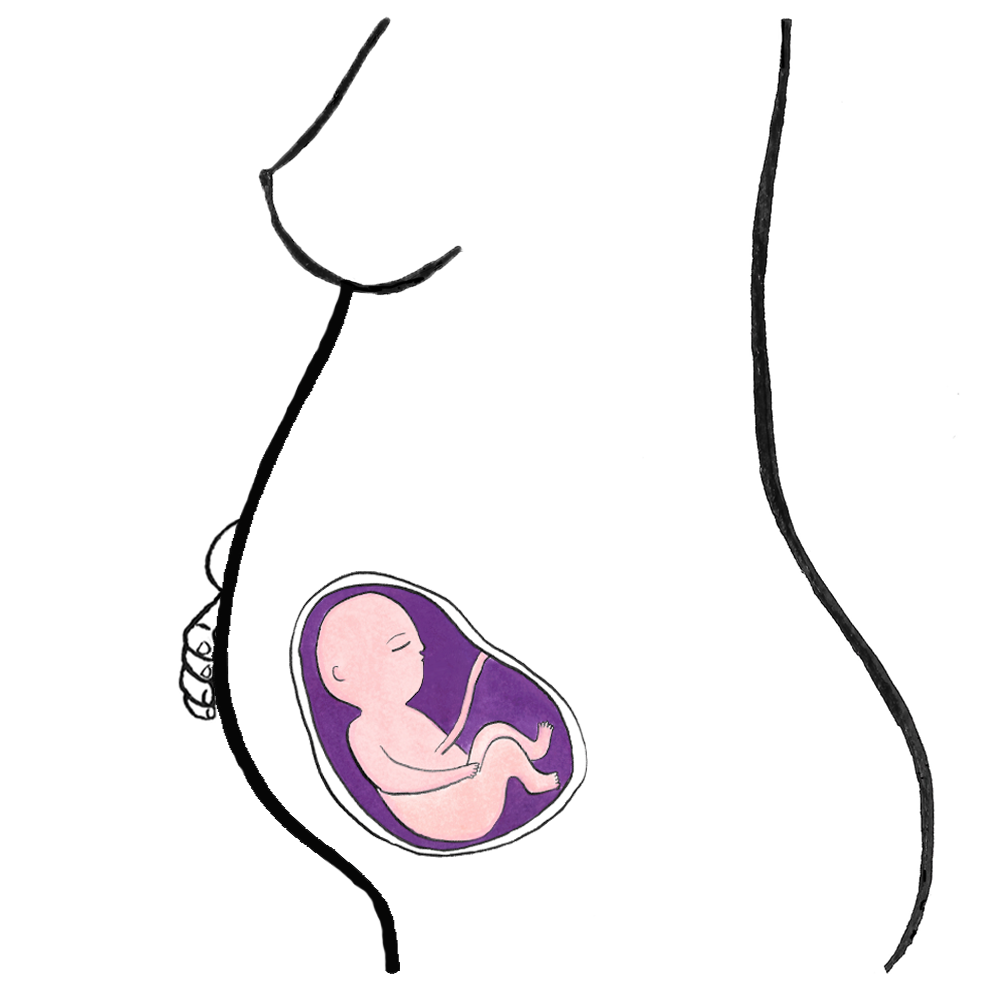23 weeks pregnant
Weekly update

Your Child face is now completely developed. Some moms already experience their first Braxton-Hicks contractions.
Your Child’s development
Your Child now weighs about 570g and measures about 30cm in length — the size of a dragon fruit. The little baby’s face is now completely developed, although it is still missing the fat that makes it chubby, which is coming soon.
The skin: Now Your Child’s skin is still translucent and wrinkly, but once fat settles in, it will become less transparent. The skin is pinkish-red because the blood vessel is forming beneath
Eye movement: Your Child begins to have rapid eye movements, which indicates a high activity within the brain and could be a sign that Your Child has started dreaming or thinking.
Fingerprint and footprint: Ridges form in the palms of the hands and soles of the feet that will later create the foundation for fingerprints and footprints.
Hiccups: Your Child might begin hiccupping, causing jerking movements, which you may be able to feel.

Your development
As your uterus expands to make room for Your Child, your belly grows as well. Also, your breasts will gradually continue to increase in size, and you might soon need a new bra with wide straps — there are bras that are specifically designed for breastfeeding.
Swelling: You may be experiencing foot swelling in the evening. In some cases, swelling may be normal, but if the swelling becomes extreme, it could be a sign of preeclampsia.
Braxton-hicks: Normally, these “fake” contractions are more likely to occur in the afternoon or evening — after physical activity or sex. They are neither harmful nor a sign of real labor. You can think of them as your uterus practicing, in readiness for child delivery.
What you can do
Your healthcare provider should check you for gestational diabetes in one of your upcoming appointments, usually between week 24-28.
Get tested for blood sugar: Like other types of diabetes, gestational diabetes affects how your cells use sugar (glucose). It causes high blood sugar, which can affect your pregnancy and Your Child’s health. So, make sure you get to do an oral glucose tolerance test (OGTT). Usually, you ought not to eat or drink anything (other than sips of water) for 8 to 14 hours before your test, but check with your healthcare provider if there is anything else you need to prepare for.
Verified:
Dr. Wanwadee Sapmee Panyakat (OB-GYN), license no. 41208 (20 October 2021)



